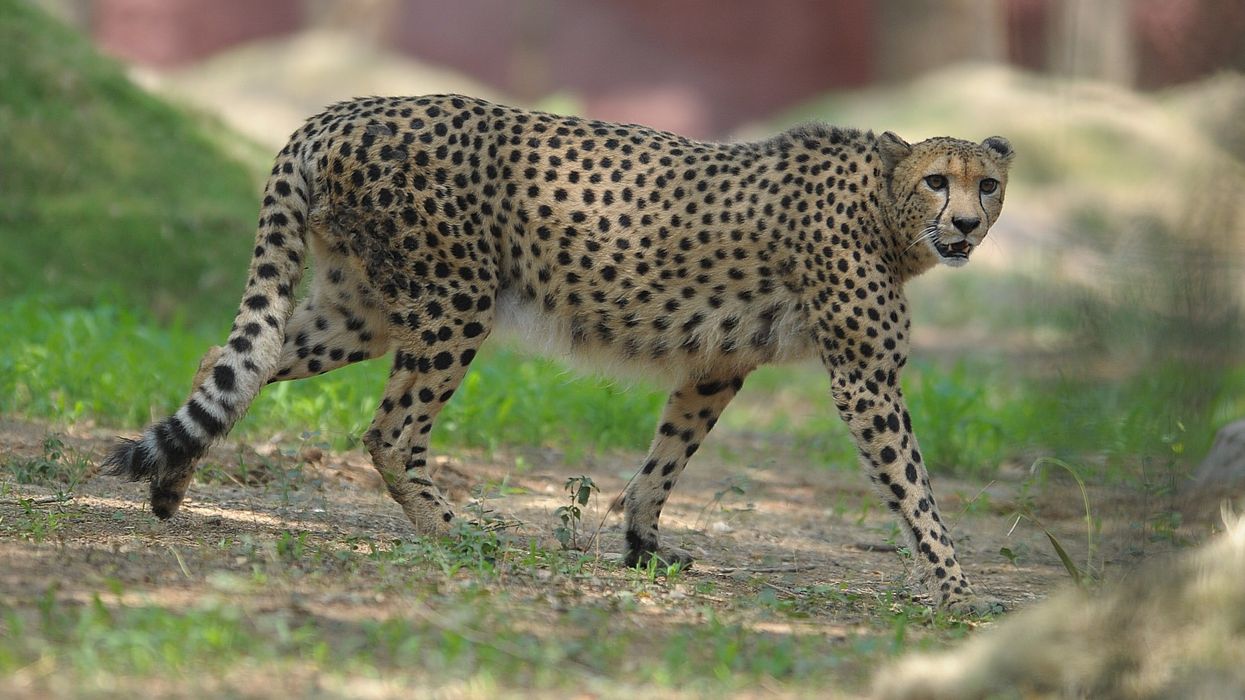India is exploring the possibility of importing cheetahs from northern Africa, officials announced on Wednesday (27). This decision comes in response to concerns that cheetahs from Namibia and South Africa, currently residing in India, have developed a winter coat in the Indian summer.
According to the officials, one of the significant challenges faced during the first year of managing cheetahs in India was the unexpected development of winter coats by some cheetahs during the Indian summer and monsoon, in anticipation of the African winter (June to September).
Even African experts did not anticipate this, a senior forest official said. The winter coat, combined with high humidity and temperatures, caused itching, leading the animals to scratch their necks on tree trunks or the ground.
This scratching resulted in bruises and exposed skin, where flies laid their eggs, leading to maggot infestations and, ultimately, bacterial infections and septicemia, resulting in the deaths of three cheetahs, the official explained.
"Considering that cheetahs in northern and northeastern Africa, which are in the northern hemisphere, might be better suited to Indian conditions, this idea is under consideration. However, we are yet to examine the status of cheetahs in this part of Africa, including their populations, health conditions, breeding cycles, etc.," said an official associated with the cheetah project on condition of anonymity.
Several international experts, including those in the UK and the US, have imported cheetahs from northern Africa and have recommended that India do the same, the official added.
SP Yadav, the head of Project Cheetah and Additional Director General (Forests) in the Environment Ministry, said, "The idea of importing cheetahs from northern Africa in the future has been discussed, but the next batch will come from South Africa."
He said that India intends to import cheetahs that do not develop thicker winter coats, as this is a primary factor behind severe infections in some cheetahs and the deaths of three of them. This issue had prompted authorities to capture and bring all the cheetahs back to the enclosures for treatment.
A third official said the idea of importing cheetahs from countries other than Namibia and South Africa is at a nascent stage and requires a lot of deliberation and work.
He added that all the cheetahs in Kuno are currently in larger enclosures and will be released in the wild soon.
Historically, cheetahs were found in parts of northern Africa, but their populations in this region have significantly declined, and they are now considered extinct or nearly extinct in many northern African countries.
Currently, the few remaining cheetahs in northern Africa are primarily found in small and isolated populations, mainly in protected areas and national parks. Some of the countries where cheetahs are still found, though in smaller numbers, include Algeria, Egypt, Niger, and Mali.
Project Cheetah, India's ambitious initiative to reintroduce cheetahs after their extinction in the country, marks its first anniversary on September 17.
The initiative began last year when prime minister Narendra Modi released a group of cheetahs brought from Namibia into an enclosure at Madhya Pradesh's Kuno National Park. Since then, the project has been closely watched by conservationists and experts worldwide.
Twenty cheetahs were imported from Namibia and South Africa to Kuno in two batches - one in September last year and the second in February.
Since March, six of these adult cheetahs have died due to various reasons. In May, three of the four cubs born to a female Namibian cheetah succumbed to extreme heat. The remaining cub is being raised under human care for future wilding.
Despite initial setbacks and difficulties that prompted a decision to recapture the animals and bring them to the bomas, officials emphasised that these experiences are being used to reassess strategies before the cheetahs are released in the wild once again.
(PTI)




